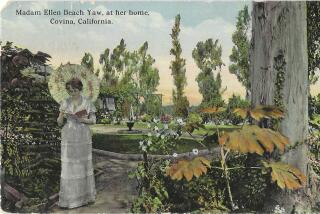Singling Out Some of Sinatra’s Hits, Misses
- Share via
This four-disc collection of the nearly 100 singles that Sinatra recorded for Capitol Records between 1953 and 1961 reminds us that our greatest singers, like our best actors, sometimes do inferior work, often under the pressure of trying to adjust to shifting commercial trends.
This was especially obvious in Sinatra’s singles output, as opposed to the more mature focus of his concept albums. In the singles, Sinatra’s goal was to reestablish himself as a Top 40 force.
For all of Sinatra’s earlier pop success, in fact, Will Friedwald, who wrote the album liner notes, describes the singer as the “down-and-out-once-and-former king” at the time Capitol vice president Alan Livingston signed Sinatra in 1953.
But Livingston had a plan. To freshen the Sinatra sound, he wanted the exquisite singer to team with conductor-arranger Nelson Riddle, who had worked successfully with another great Capitol artist, Nat King Cole. Sinatra resisted the idea, saying he preferred to work with Alex Stordahl, his longtime musical sidekick.
But they came to a compromise, Friedwald writes: Sinatra would go into the studio with Stordahl and make a record. If it didn’t do well, the singer would then try a session with Riddle.
The upbeat “Lean Baby” and the painfully slow “I’m Walking Behind You,” which were both recorded with Stordahl, were released in the spring of 1953 as Sinatra’s first Capitol single. Both tracks were disappointing artistically, and the sales impact was minimal.
In retrospect, the record may have been the most important flop in pop history because it led Sinatra to Riddle--and the two made magic from the start.
“I’ve Got the World on a String” was the first song they did together, and Riddle’s snappy arrangement helped Sinatra convey the sophistication and command that were to mark his most prized Capitol recordings--recordings generally felt to be Sinatra’s finest work.
While the single only reached No. 14 on the pop charts, the dynamism of the pairing was obvious. By the end of the year, Sinatra and Riddle had come up with their first smash hit: the enchanting “Young at Heart.”
In trying to navigate the commercial currents of the ‘50s, a time of enormous upheaval because of the R&B; and rock assault on mainstream sensibilities, Sinatra made some embarrassing missteps. They included a horrendous attempt with arranger Dave Cavanaugh to hook into the R&B-rock; world with a remake of the Charms’ “Two Hearts, Two Kisses” that was even less convincing than a version by the much-maligned Pat Boone.
There were also times when even Riddle and Sinatra seemed to settle for middlebrow material, and the results were predictably flat. Yet there are numerous gems--from such hit singles as “Learning the Blues” and “All the Way” to such overlooked delights as “Don’t Worry ‘Bout Me” and “River Stay Away From My Door”--that make this an inviting as well as historically valuable set. Thirty selections appear on CD for the first time.
*
Albums are rated on a scale of one star (poor), two stars (fair), three stars (good) and four stars (excellent).
More to Read
The biggest entertainment stories
Get our big stories about Hollywood, film, television, music, arts, culture and more right in your inbox as soon as they publish.
You may occasionally receive promotional content from the Los Angeles Times.










